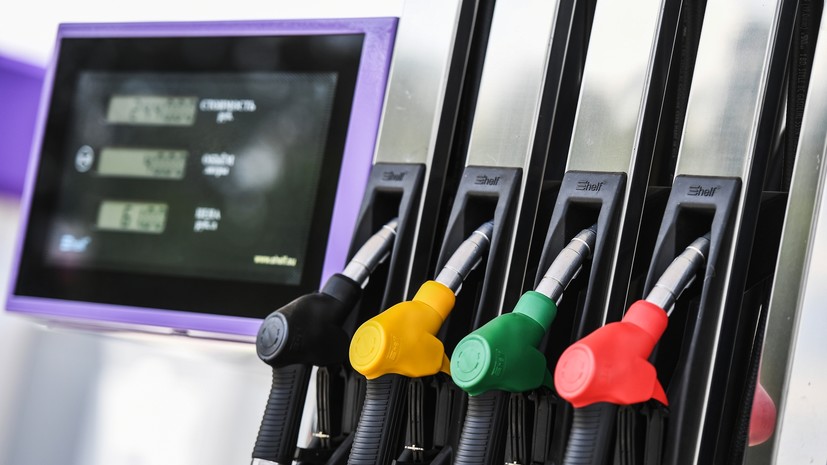From March 1, 2024, the Russian government plans to introduce a temporary ban on the export of gasoline from the country.
A representative of Russian Deputy Prime Minister Alexander Novak reported this to TASS on Tuesday, February 27.
It is expected that the restriction will be in effect for six months and will compensate for the increase in demand for fuel in the spring and summer.
The last time the authorities resorted to a similar initiative was in the fall of 2023 to saturate the domestic market and stabilize prices.
Moreover, like last time, the new decision of the Cabinet of Ministers provides for some exceptions.
For example, the export ban will not affect gasoline supplies to other states of the Eurasian Economic Union (Armenia, Belarus, Kazakhstan and Kyrgyzstan), as well as to South Ossetia, Abkhazia, Mongolia and Uzbekistan.
“The purpose of this measure is to prevent a shortage from forming in the market and fuel prices from rising significantly.
We now produce about the same amount of gasoline as we consume, so increased exports could instantly lead to fuel shortages and higher prices.
Therefore, the government’s decision is a kind of preemptive strike before a seasonal increase in demand,” Igor Yushkov, leading analyst at the National Energy Security Fund, explained to RT.
According to him, from mid-spring, fuel consumption in Russia traditionally increases due to the beginning of field work, the driving season and the holiday period.
At the same time, the supply of fuel, on the contrary, decreases, since oil refineries usually undergo scheduled maintenance.
As a result, there may be a shortage of gasoline in the country's domestic market, which, as a rule, leads to a more confident increase in prices at gas stations.
“The government is going to limit exports a little in advance so that all surplus is sent for storage.
As a result, when demand begins to grow later, it can be covered not only by current capacities, but also by using existing reserves to avoid a jump in retail prices.
The cost of gasoline will continue to rise, but this increase must be kept in line with inflation,” Yushkov added.
© Svetlana Vozmilova/Global Look Press
In addition to the ban on the export of gasoline, the authorities may oblige oil companies to increase sales of diesel fuel on the stock exchange.
If now companies must sell 12.5% of the total volume of diesel produced through the trading platform, then from March 1 the standard can be increased to 16%.
As the Cabinet of Ministers previously explained, the sale of part of the fuel produced by Russian oil companies on the stock exchange gives independent gas stations the opportunity to purchase it at market value.
This approach reduces the risks of monopoly pricing, since many dominant participants in the fuel market have their own network of gas stations.
“It is worth noting that diesel fuel is actively used in agricultural machinery.
Therefore, if prices for this fuel begin to rise sharply, the authorities may further increase the standard for sales through the exchange,” Freedom Finance Global analyst Vladimir Chernov suggested in a conversation with RT.
Moreover, if necessary, the country’s leadership can, by analogy with gasoline, ban the export of diesel abroad, believes Igor Yushkov.
Also, in the event of a noticeable increase in the cost of fuel, the government can create incentives for companies to make it more profitable to sell fuel on the domestic market rather than on the foreign market.
“This can be done, for example, by increasing damper payments.
Then additional volumes of fuel will go to the domestic market, which will put even greater pressure on prices,” noted Igor Yushkov.
Let us explain that, within the framework of the damping mechanism, the state compensates oil companies for lost revenues when selling fuel within the country.
Thus, if fuel prices in Russia are lower than export prices, manufacturers receive compensation from the federal budget.
With the higher cost of raw materials in the Russian Federation, business, on the contrary, transfers part of its profits to the treasury.
“I think that this year restrictions on fuel exports from Russia, combined with damper payments to oil workers, will be able to keep the growth of domestic prices within the framework of average annual inflation.
Since the rise in fuel prices directly affects the cost of all goods, the authorities will try to curb it by applying various regulatory mechanisms.
Therefore, it is likely that by the end of 2024, retail fuel prices will increase by no more than 5%,” concluded Vladimir Chernov.

